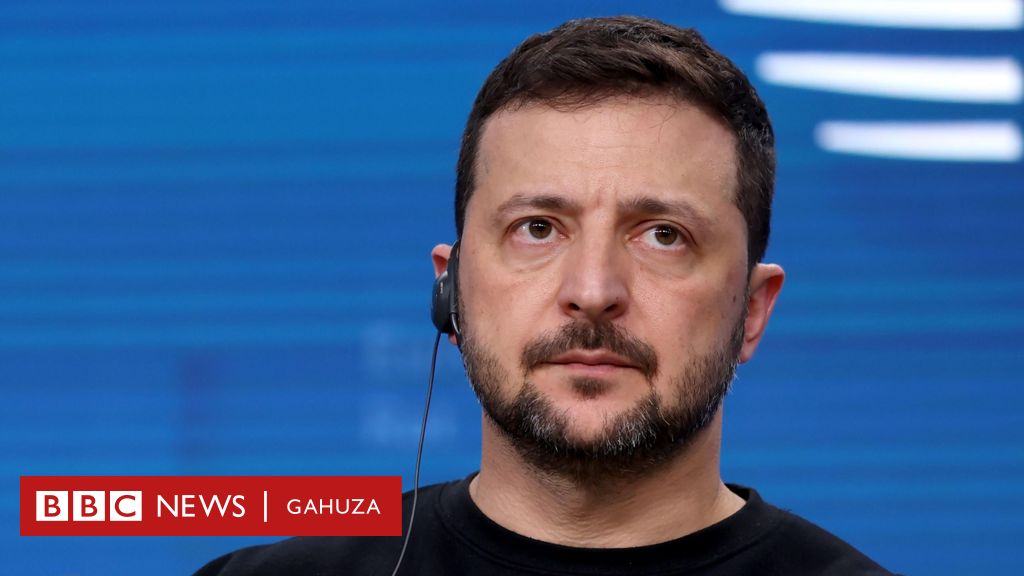 |
|
The statement by Ukrainian President Volodymyr Zelenskyy regarding NATO membership ending the 'hot phase' of the ongoing conflict with Russia is a significant development in the geopolitical landscape. His assertion highlights the deeply intertwined nature of Ukraine's security concerns and its aspirations for integration within the North Atlantic Treaty Organization. The war, initiated by Russia's full-scale invasion in February 2022, has resulted in widespread devastation, displacement, and loss of life. Zelenskyy's comments underscore the belief that NATO's collective security guarantee, encompassing Article 5's commitment to mutual defense, would serve as a powerful deterrent against further Russian aggression. This perspective reflects the prevailing sentiment among many Ukrainians who view NATO membership as the most effective path toward ensuring their nation's sovereignty and territorial integrity. However, this assertion warrants careful consideration within the broader context of the ongoing conflict and the complexities of NATO's decision-making processes.
The path to NATO membership for Ukraine is fraught with challenges. Despite strong support from some NATO members, particularly in Eastern Europe, significant obstacles remain. Concerns regarding potential escalation of the conflict, the complexities of integrating a nation actively engaged in a major war, and the internal political dynamics within NATO itself all contribute to the ongoing debate. The potential for provoking a direct military confrontation with Russia remains a primary concern for some NATO allies, leading to a cautious approach to Ukraine's application. This cautious stance is further complicated by the ongoing geopolitical tensions between Russia and the West, and the need to balance the principle of self-determination for Ukraine with the imperative of avoiding wider conflict. Furthermore, the practical implications of integrating a large and war-torn nation into the complex military and political structures of NATO require extensive planning and consideration.
The debate surrounding Ukraine's NATO aspirations extends beyond the immediate security implications. It touches upon the broader question of the future of European security architecture, the evolving nature of alliances in the 21st century, and the role of international organizations in responding to armed conflict. Zelenskyy's statement serves as a powerful rallying cry for those who see NATO membership as a crucial step towards peace and stability in Ukraine and the region. However, it also raises fundamental questions about the limitations and capabilities of NATO in addressing complex security challenges, particularly in situations where the potential for direct confrontation with a nuclear power exists. The international community continues to grapple with the challenge of finding a just and lasting solution to the Ukrainian conflict, and the question of NATO membership remains a central and highly contested element in these discussions. The long-term consequences of any decision regarding Ukraine's NATO aspirations will have far-reaching implications for regional and global security.
Beyond the immediate military implications, the economic ramifications of Ukraine's potential NATO membership are significant. The prospect of joining the alliance could trigger further economic sanctions against Russia, potentially deepening the global economic impact of the conflict. The costs associated with integrating Ukraine into NATO's military structure would also need to be carefully considered. Furthermore, the potential impact on foreign investment in Ukraine would need to be evaluated, particularly given the ongoing uncertainty surrounding the conflict. These economic aspects, while often overshadowed by the military and political considerations, are integral to a comprehensive assessment of Ukraine's NATO aspirations.
In conclusion, Zelenskyy's assertion that NATO membership would end the 'hot phase' of the war in Ukraine is a provocative and significant statement that underscores the deep strategic importance of this issue for Ukraine. The path towards such membership remains highly complex and contentious, fraught with political, military, and economic challenges. The international community must carefully consider the potential implications of this decision, weighing the strategic benefits against the potential risks, while keeping the fundamental goal of achieving a just and lasting peace in Ukraine at the forefront.
Source: Ukraine: Zelensky avuga ko kuba umunyamuryango wa NATO byarangiza 'icyiciro gishyushye' cy'intambara
